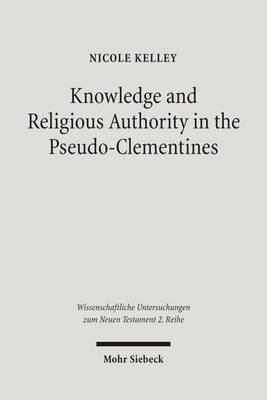Wissenschaftliche Untersuchungen zum Neuen Testament 2. Reihe
1 primary work
Book 213
The Pseudo-Clementines are best known for preserving early "Jewish Christian" traditions, but have not been appreciated as a resource for understanding the struggles over identity and orthodoxy among fourth-century Christians, Jews, and pagans. Using the work of sociologist Pierre Bourdieu, Nicole Kelley analyzes the rhetorical strategies employed by the Recognitions. These strategies discredit the knowledge of philosophers and astrologers, and establish Peter and Clement as the exclusive stewards of prophetic knowledge, which has been handed down to them by Jesus. This analysis reveals that the Pseudo-Clementine Recognitions is not a jumbled collection of earlier source materials, as previous interpreters have thought, but a coherent narrative concerned primarily with epistemological issues. The author understands the Recognitions as a reflection of complex rivalries between several types of Christian and non-Christian groups such as that found in fourth-century Antioch or Edessa.
